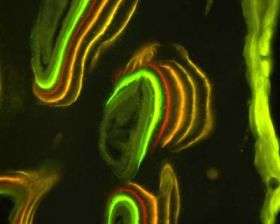Toward a better drug for treating muscle, bone loss in elderly men

The search for alternatives to steroid medications for treating millions of Baby Boomer males with age-related declines in the sex hormone testosterone has led researchers in California to report development of a nonsteroidal compound that shows promise as a new treatment for loss of muscle mass, bone tissue, and other problems linked to low testosterone. Their study will appear in the Oct. 18 issue of the ACS’ Journal of Medicinal Chemistry.
In the report, Arjan van Oeveren and colleagues point out that the potential side effects of testosterone, a steroid medication, limit its use to older men with low testosterone levels. Testosterone replacement therapy may increase the risk of prostate cancer and stroke, for instance, and cannot be given orally. People take it via skin patches or rub-on gels.
The new study describes a nonsteroidal compound that in lab rats attaches to testosterone receptors in cells and triggers the same desired effects as actual testosterone in tests in laboratory animals. In comparison to other testosterone replacement treatments, the compound showed similar improvement in muscle mass and strength while having little effect on the prostate, the researchers say. It also significantly improved bone density and strength in the lab rats.
Source: ACS

















